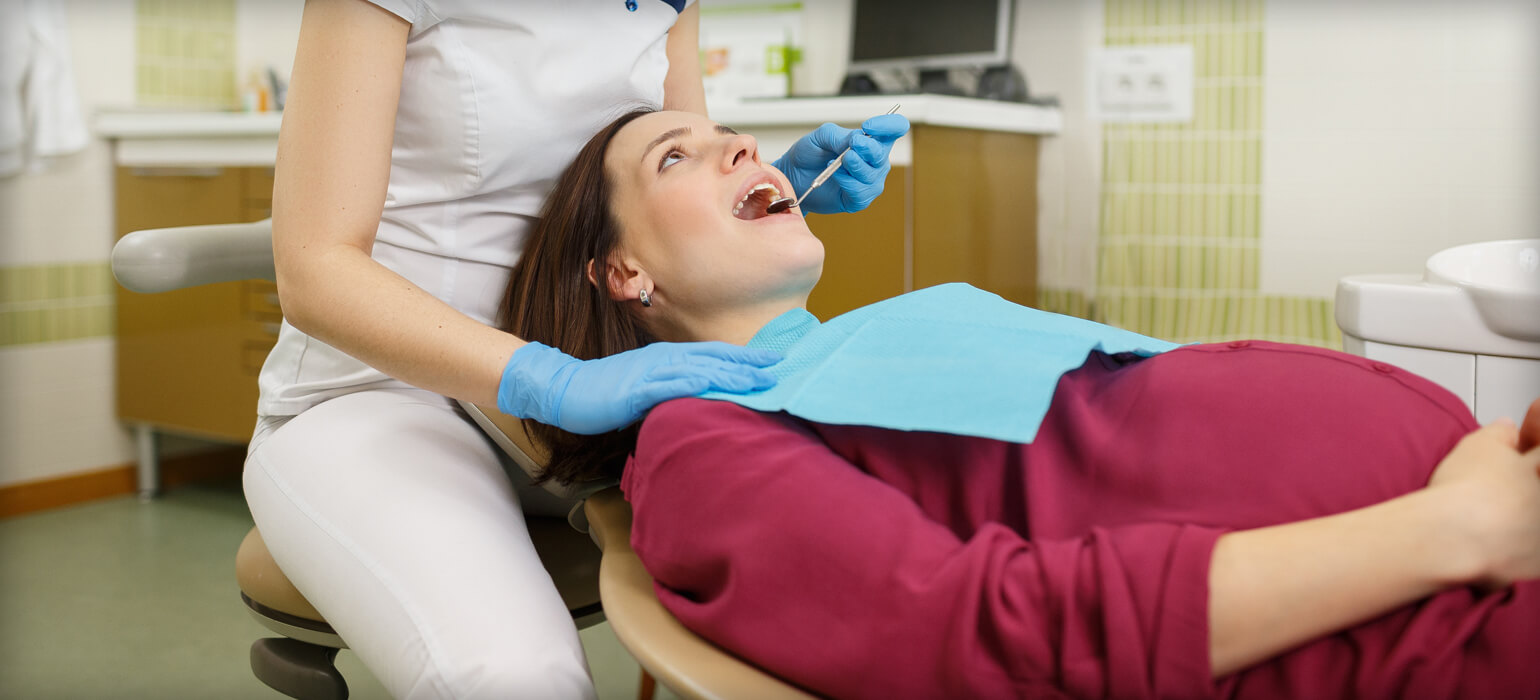Dental Health
Oral Health During Pregnancy

During pregnancy, a woman’s increased hormones can affect how her body responds to plaque, the sticky, bacteria-filled film that builds up on teeth and can result in periodontal disease and potential tooth decay. In addition, some of the common side effects of pregnancy such as vomiting, cravings for sugary foods or even gagging while brushing can exacerbate the issues. However, research suggests that up to 18 out of every 100 premature births may be triggered by periodontal disease making dental health for expectant mothers an important part of an overall healthy pregnancy.
Women are less likely to have dental problems during pregnancy if they already have good oral hygiene habits, including:
- Brush your teeth at least twice daily with fluoridated toothpaste
- Floss between your teeth
- Regular dental exams and cleanings.
If you are planning on getting pregnant, but you are also planning on having some elective dental procedures, please tell us. It is often more convenient to have elective procedures done before you conceive. If you require dental treatment during pregnancy, non-urgent procedures are often performed after the first trimester.
We recommend you increase your daily intake of calcium during pregnancy. Enough calcium will protect your bone mass and meet the nutritional needs of your developing baby. Good sources of dietary calcium include products such as milk, cheese, unsweetened yogurt, calcium-fortified soy milk. Vitamin D can also be beneficial, as it helps the body utilize the calcium. Vitamin D can be found in fatty fish, such as salmon, eggs, liver, and mushrooms.
Learn more about treatments for periodontal disease.
